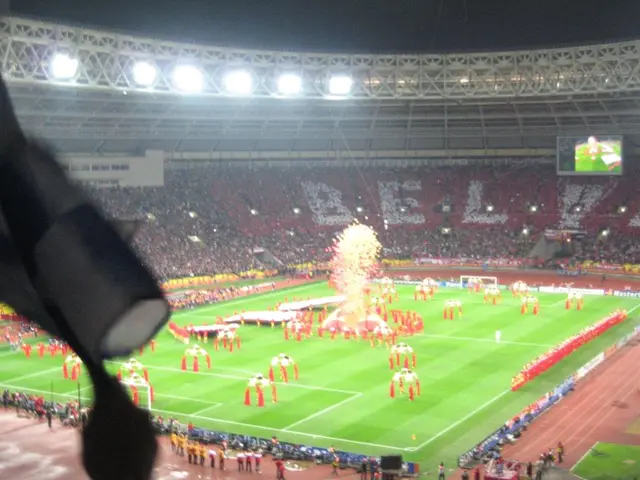"Israel advances significant West Bank settlement development, potentially dividing the Palestinian region"
In a move that has sparked widespread international condemnation, Israel has definitively approved a controversial plan to build 3,400 housing units in occupied Cisjordania, known as "E1". This decision, made on a contentious issue, has been met with protests from various quarters, with critics arguing that it would divide Palestinian territory and prevent the creation of a potential Palestinian state with territorial continuity.
The E1 project, located in the area east of Jerusalem, is a strategic initiative that, according to the NGO Ir Amim, is part of Israel's broader program aimed at effectively annexing the West Bank. This assertion is supported by the fact that the colonization of the West Bank, Israel's border with Jordan, has continued under all Israeli governments since 1967, with approximately 500,000 Israelis settled in colonies in Cisjordania, which the UN considers illegal under international law.
The European Union and the UN have both judged the E1 project as a violation of international law, with the latter calling on Israel to abandon its construction. The 31 Arab and Islamic countries, including the Arab League, the Organization of Islamic Cooperation (OIC), and the Gulf Cooperation Council (GCC), have also condemned the E1 plan, viewing it as a violation of international law and a threat to peace.
The NGO Ir Amim warns that the E1 project is a fatal plan for the future of Israel and any chance of a two-state solution to the Israeli-Palestinian conflict. Similarly, the Israeli anti-colonization NGO "Peace Now" has warned against the E1 project, stating that it is a deadly planning for the future of Israel and for any chance of a two-state solution.
The colonization of the West Bank has significantly intensified under the current Israeli executive, particularly since the start of the Gaza war on October 7, 2023. This intensification has led to a rise in clashes, sometimes deadly, between local Palestinian populations, the army, and Jewish settlers, particularly in the West Bank.
Guy Yifrah, mayor of the neighboring Israeli colony of Ma'ale Adumim, announced the approval of the planning for the construction of the E1 neighborhood. His announcement was celebrated by Minister of Finance Bezalel Smotrich, a figure of the far right, who stated that it marks the erasure of the Palestinian state.
However, the Palestinian Authority estimates that the E1 project fragments the unity of the West Bank and anchors the division of the occupied West Bank into isolated zones and cantons, disconnected geographically and resembling real prisons. This division, they argue, would further complicate the already complex Israeli-Palestinian conflict.
The Israeli Ministry of Defense, led by Israel Katz, has also been in the news recently, having approved the takeover of the city of Gaza while ordering the recall of 60,000 army reservists. This decision, too, has sparked controversy and concern, adding to the ongoing tensions in the region.
In conclusion, the approval of the E1 project has ignited a real outcry, with critics arguing that it would deepen the Israeli-Palestinian conflict and further impede the path towards a two-state solution. The international community, including the EU, UN, and various Arab and Islamic countries, have all condemned the decision, viewing it as a violation of international law and a threat to peace. The future of the region remains uncertain, with the E1 project serving as a stark reminder of the ongoing challenges that lie ahead.
Read also:
- United States tariffs pose a threat to India, necessitating the recruitment of adept negotiators or strategists, similar to those who had influenced Trump's decisions.
- Weekly happenings in the German Federal Parliament (Bundestag)
- Southwest region's most popular posts, accompanied by an inquiry:
- Discussion between Putin and Trump in Alaska could potentially overshadow Ukraine's concerns








